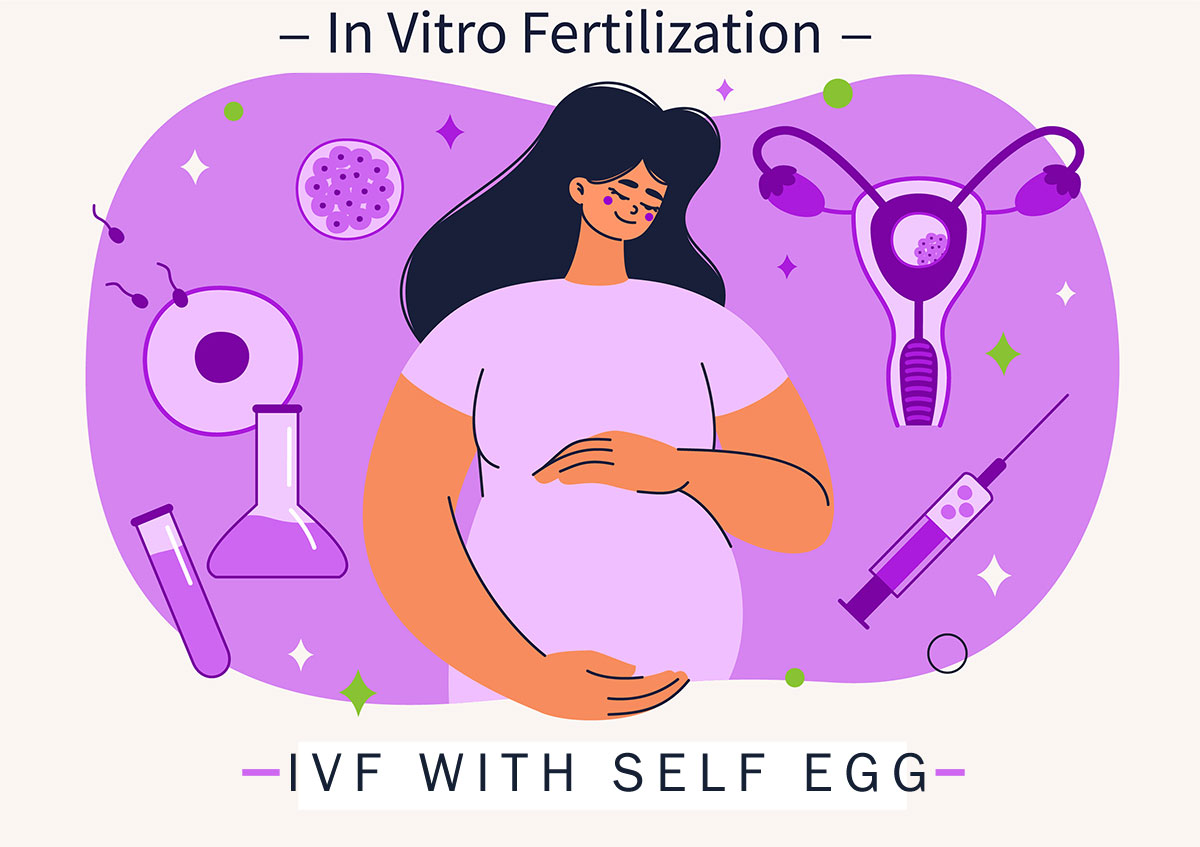The Pride IVF center, in Guwahati, tremendously moves ahead with the highest IVF success rate using self-egg at the lowest possible cost ranging from Rs 1.5 lakhs. Every infertile person (unable to get pregnant) is looked upon at this center with another hope of parenthood dreams after failing the natural process.
- Get Free First Consultations: Book an appointment
- Call/W +91 70028 98747 Email: info@prideivf.org
IVF success rate with Self-Egg, Guwahati
In General, the success rate of self-egg IVF most importantly depends upon the age of the woman, as well as the fertility conditions.
The Pride IVF best team of IVF Doctors in Guwahati is committed and provides the highest IVF success rates using the self-egg. Look at the pie chart below, showing the IVF success rates:
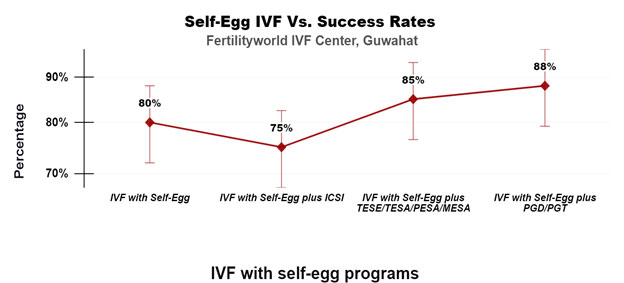
The average self-egg IVF success rate from the chart shows that;
- Simple IVF with self-egg is 80%.
- IVF with self-egg plus ICSI 75%
- IVF with self-egg plus surgical sperm aspiration is 85%
- IVF with self-Egg plus PGD/TGT is 88%.
Self-Egg IVF success rates based on the women’s age
Let’s look at the chart below and know about the IVF success rates based on the women’s age:
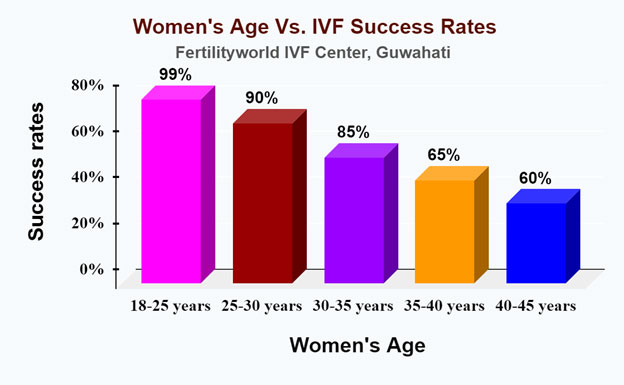
As you understand, younger women are more likely to have higher success rates. IVF isn’t usually recommended for women over the age of 42 because the chances of a successful pregnancy are thought to be low.
The percentage of IVF treatments that resulted in a live birth for women using their own eggs and their partner’s sperm receives the following success rates at the Pride IVF in Guwahati:
- 99% for women aged between 18-25 years.
- 90% for women aged between 25 to 30 years.
- 85% for women aged between 30 to 35 years.
- 65% for women aged between 35 to 40 years.
- 65% for women aged between 40 to 45 years
The success rate for self-cycle IVF is good in younger women and may go down as they age (above 35). As both the quality and quantity of eggs drastically reduce beyond this age.
Best IVF Doctors in Guwahati
The Pride IVF is a renowned IVF center, as the center is supported by the best IVF Doctors who are committed and sacrifice their professional’s goals to serve the infertile person in completing their family dreams. Some of the center’s finest IVF Doctors include:
Dr. Pammy Murthy
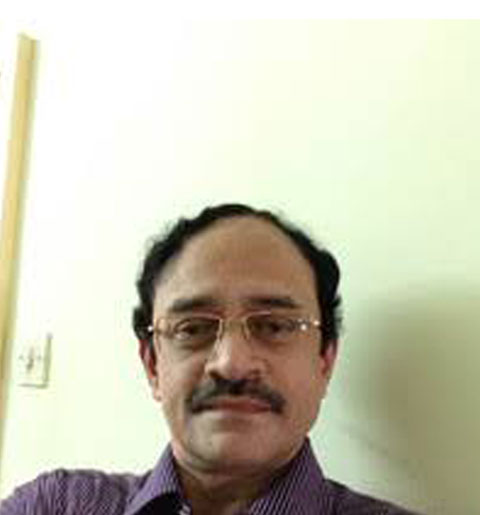
Dr. Mohit Saraogi
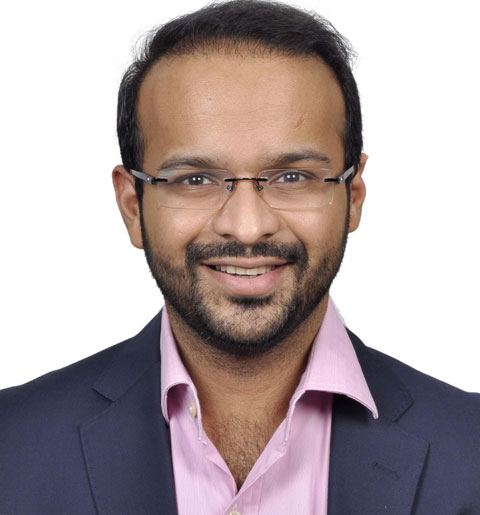
Dr. Rita Bakshi
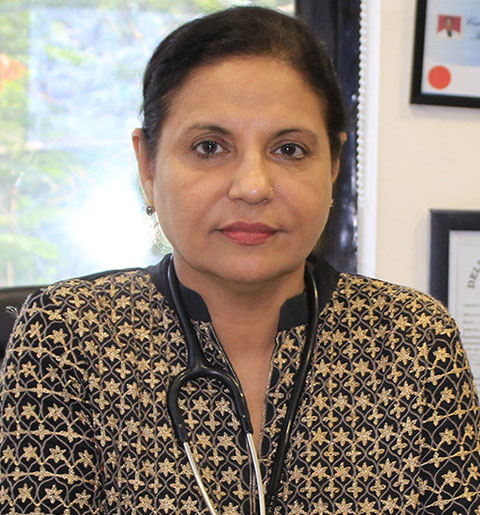
Dr. Pankaj Talwar
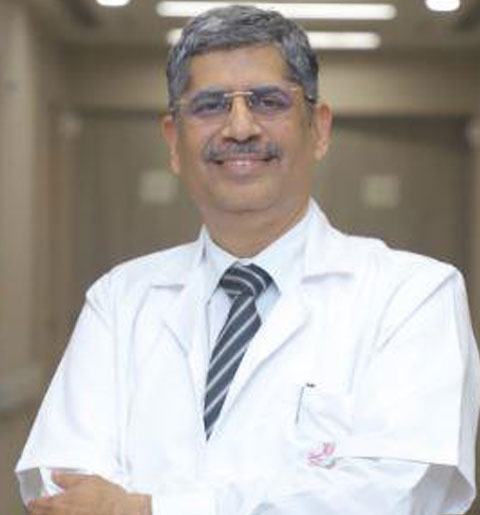
Dr. Souren Bhattacharjee
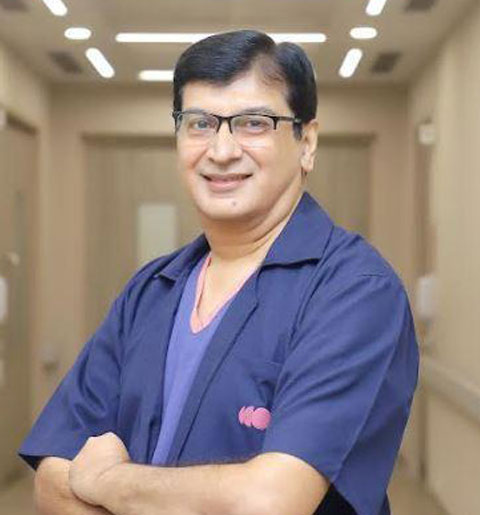
Dr. Sunita Pandit

Dr. Vinita Das
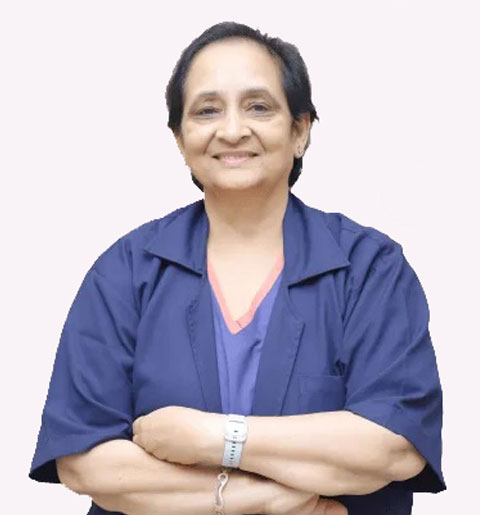
Can I use my own eggs for IVF?
Yes! You can use your own eggs for IVF known as self-cycle IVF treatment. In-Vitro fertilization (IVF) is the most effective form of assisted reproductive technology (ART). The procedure can be done using a couple’s own eggs and own sperm. Or IVF can use the eggs, sperm, or embryos from a known or anonymous healthy donor. In some cases, a gestational carrier (surrogate mother) might be used
Who is the best candidate for Self-Egg IVF?
When speaking about self-cycle IVF, a couple’s own gametes (sperm and egg) are used.
- Self-egg IVF will benefit those couples who begin their IVF treatment for the first time.
- Self-cycle IVF is the best option for males having azoospermia (zero sperm count).
- Those couples with low sperm count and low egg quality can opt for it.
- It can be suggested by a fertility consultant after the couple is found to be healthy and fit to undergo it.
However, before going for a self-cycle IVF, Pride IVF Doctors insisted that a couple needs to clear all the misconceptions regarding it with the fertility consultant during free consultations. Educate yourself regarding what will work for you the best and make the decision accordingly. Remember that, in a self-cycle IVF, the child inherits the DNA from its biological parents.
IVF processes using self-egg and self-sperm
The Pride IVF center in Guwahati strictly follows the legal procedures during the IVF process. IVF is simple but it involves a series of procedures. Therefore, it is done by highly qualified, experienced gynecologists, embryologists, psychologists, etc.
The IVF process with self-gametes is done in the following steps:
- Booking Appointment: To proceed with self-egg IVF or for any queries, related to fertility problems one has to book an appointment via Whatsapp, email, or through phone calls at the Pride IVF.
- Free Consultation: Our coordinators will schedule your appointment directly with our fertility Doctors where you can ask anything about fertility issues. Our Doctors will have an oral examination via phone calls or they may ask you to visit the Pride IVF or to go for some fertility test in your home town and they will record the results and let you know whether Self-Egg IVF is good for you or not.
After our Doctor’s advice or suggestions, it is up to you whether you want to proceed further with IVF at the Pride IVF in Guwahati.
- Ovulation stimulation: During the female menstrual cycle. The superovulation (release of the egg from the ovary) process will be initiated by giving fertility drugs such as Follicle Stimulating Hormone (FSH) or Luteinising Hormone (LH). This drug will stimulate the female body to produce multiple eggs than just the normal one egg/per month. Transvaginal ultrasounds and blood tests are done regularly during this step to check on your ovaries and monitor your hormone levels.
Note: The more eggs produced, the more chances of successful fertilization later on in the treatment. Ovulation (release of the egg from the ovary) is caused by an increase in LH about 2 weeks before menstruation starts.
- Trigger Injection: An injection of human chorionic gonadotropin (hCG) is triggered at the exact time to aid the egg’s final maturation and loosen it from the follicle wall. This trigger injection time is crucial, it is noted down very specifically by the specialist. This injection helps the egg to mature quickly.
- Egg retrieval: Egg retrieval is carried out on the 2nd morning (34-36 hours later) after the triggered injection. The Pride IVF chief embryologist will carry out a minor surgical procedure under very light sedation known as the follicular aspiration to collect the eggs or “egg-pick up”.
The process, an ultrasound-guided probe guides the fine needle into each of the ovaries through the vaginal canal.
This fine needle is attached by the suction mechanics that suck out the egg along with the fluid, one at a time. They are collected into a test tube and studied under a microscope to look for healthy eggs.
It takes about 20-30 minutes, depending on the number of follicles that have developed.
After the egg retrieval, you have to rest for 1 hour before sending you back home. The Pride IVF always recommends its patients take the day off work and avoid any strenuous exercise.
- Semen Sample Collection of the male Partner: During the egg retrieval, the male partner is asked to give his semen sample via the traditional method (masturbation), or via surgical sperm aspiration (if he cannot produce traditionally).
Note: If you and your partner have any concerns about collecting the sample, be free to discuss it with our specialist before starting your cycle.
There is possible to produce the semen sample at home and drop it off at our clinic or to freeze one of the semen samples as a backup. You may also choose to use donor sperm (if required).
- Fertilization of the egg and the sperm: The best-concentrated collected sperm is combined with the eggs in the laboratory called the insemination process. The combined solution is then placed in Petri dishes or a test tube loaded with the culture medium and incubated overnight. Examined the next day for signs of fertilization.
Mostly, 60%-70% of eggs get fertilized when the sperm sample appears normal. It usually takes a few hours for a sperm to fertilize an egg. The fertilized eggs are again incubated for an additional 48 hours in total maturation.
Sometimes during the process, our IVF Doctors can recommend doing Intracytoplasmic Sperm Injection (ICSI) as part of your treatment if your partner’s sperm quality is low (sperm count, morphology, or motility).
ICSI is a specialized form of treatment for male infertility that involves injecting a single sperm directly into a single mature egg in the laboratory to assist egg fertilization.
- Embryo Implantation into the Uterus: After fertilization for 2-5 days, the resultant is known as the embryo. The best-stage-developed embryo is selected and loaded into a thin plastic catheter (a soft tube), that is made to pass through the cervix, into the uterus, and gently releases into the uterus. The process itself takes only a few minutes and is usually painless. This part of the IVF process is performed in the doctor’s office while you are awake.
Mostly, Multiple embryos are implanted in the hopes that at least one will implant itself in the lining of the uterus and begin to develop. Sometimes more than one embryo ends up implanting, which is why multiple fetus formation is possible in women who use IVF.
Note: After the transfer, some of the remaining embryos may be suitable for vitrification (rapid freezing), and this option is available to all patients undergoing IVF treatment. Frozen embryos can be used in subsequent cycles if the first one is not successful, or they can be donated to someone who needs a donor embryo.
The luteal phase: This is the phase/time between the embryo transfer and the pregnancy test. During this time you must look after yourself and maintain good health and well-being. The IVF process replicates natural reproduction.
- The pregnancy test: To confirm positive pregnancy. After 14 days a blood test is done. If pregnancy is confirmed, you are the first person to notify, our nurses will let you know via contacts or in-person and will advise you on the next steps to take on your journey to delivering a child.
How we care about you, your pregnancy.
We recognize that the time between embryo transfer and your pregnancy test can be emotionally charged with anxiety and expectation. Therefore, to help you we can arrange a place for your birth parting our happiness with your expanding family. We provide personalized, compassionate care and support you at every step of your fertility journey.
How many eggs are needed to get pregnant with IVF?
The requirement of the eggs for IVF can depend on the age of the woman. Women under 38 years in our IVF program have acceptable live birth rates even with only 2–6 eggs ( much better with more than 6 eggs, and do best with more than 10 eggs).
Women between 38-40 years and between 41-45 years old have lower live birth rates with low egg numbers. Success rates are much better when relatively high egg numbers are obtained.
Is the IVF egg retrieval procedure painful?
No! IVF egg retrieval procedure is not painful. It is because of the type of anesthesia that is used, patients do not feel any pain during the egg retrieval procedure. However, patients may experience abdominal cramping for a day or two after the procedure which vanishes within a few days.
What are the signs of poor egg quality?
There aren’t many obvious symptoms of low egg reserve, so our fertility experts ask you about these during the free consultations:
- Whether periods are absent or have late periods.
- Periods Timing: Shorter-than-average menstrual cycles.
- Whether having irregular periods (heavy or light flow).
- Any History of miscarriage.
What is surgical sperm aspiration?
When a male has viable sperm for assisting the egg fertilization but cannot ejaculate during sex or during masturbation in such cases the sperm is collected surgically known as Surgical Sperm aspiration.
There are different types of surgical sperm aspiration and is carried out based on the male’s inability to ejaculate the semen sample, they include:
- Testicular Sperm Aspiration (TESA): TESA is performed for men who are having sperm retrieved for IVF/ICSI. A needle is inserted in the testicle and the tissue/sperm are aspirated. It takes about 20 to 30 minutes. Recovery is shorter and significantly less painful. It may cause some discomfort for days, but it is not a painful treatment. Sperm extraction through TESA has a high rate of success. The general figure stands at above 80%.
- TESE: TESE is best in men with both obstructive and non-obstructive azoospermia. These men have no sperm in their ejaculate because either there is a blockage in the route between the site of sperm production (the testes) and ejaculation or because there is a partial or complete failure in sperm production in the testes. It involves making a small incision in the testis and examining the tubules for the presence of sperm. TESE’s success rate is quite favorable for men. In fact, doctors are able to find sperm approximately 60% of the time during TESE procedures.
- Percutaneous Epididymal Sperm Aspiration (PESA): It is done in men who have obstructive azoospermia from either a prior vasectomy or infection. The procedure involves inserting a fine needle into the epididymis, from which fluid is aspirated. This fluid is then inspected immediately by embryologists under a microscope for sperm content and motility. The procedure takes about 20-30 minutes. It causes minimal pain and discomfort.
- Microsurgical Epididymal Sperm Aspiration (MESA): MESA is a procedure for men who have vasal or epididymal obstruction (s/p vasectomy, congenital bilateral absence of the vas deferens). It involves using a surgical microscope to open the small tubes within the epididymis to look for sperm. After MESA, the ICSI method must be used to fertilize the egg.
What is PGD?
PGD stands for Pre-implantation genetic diagnosis. PGD is a laboratory technique performed in conjunction with IVF to reduce the risk of passing on inherited conditions from parents to the offspring.
Who should go for PGD?
If a couple has a risk or a history of genetic disorders, then PGD is the best option to avoid such genetic disorders in their offspring.
- The risk of conceiving an affected pregnancy must be 20% or more.
- The female partner should be under the age of 40 years when treatment is commenced.
- The female partner should have a BMI of more than 19 and less than 30.
What is the process of PGD?
The primary reason why intended parents chose PGD is to lower the possibility of passing on specific genetic diseases to children conceived, usually during IVF.
The process of PGD involves testing the early embryo after in vitro fertilization of the gametes of the couple in the laboratory. Where, 1 or 2 cells (blastomeres) are removed at biopsy from the preimplantation embryo at the 6-10 cell stage (day 3 of development), thus allowing replacement into the uterus of unaffected embryos.
What are the benefits of PGD testing?
By using PGD testing, you and your doctors can:
- Identify and avoid fertilizing embryos that carry one (or more) genetic diseases and conditions.
- Allow intended parents with genetic disorders to conceive with a significantly lower risk of passing those disorders on to their children.
- Improve the chances of a successful pregnancy by transferring the strongest, best embryos into the uterus.
- Reassess your decision to continue with pregnancy given the embryos available, as implantation has not yet occurred.
- Identify the sex of embryos and select which sex to implant (also known as gender selection at many fertility clinics).
Move Ahead With Self-Egg IVF In Guwahati.
If you wish to know more about IVF, ICSI, PGT/PGD, IUI, Surgical sperm retrieving procedures, Donor assistance (egg/sperm/embryo), or any other related to fertility treatments, at Pride IVF best IVF clinic in Guwahati, please feel free and write to us at support@prideivf.org. we’re right away to answer and solve your problems with free consultations.
Further, if you’re interested in directly discussing the cost of IVF, the cost of Donor eggs, cost of IUI, Cost of ICSI, Cost PGT/PGD, Cost TESA/PESA/TESE/MESA, or any fertility-related treatment cost, and discount. Please feel free and write to us at finance@prideivf.org. We provide free consultations and no charges for your query. The Pride IVF is committed to making your parenthood dreams into reality. Contact us today.
Together let’s build your families!

